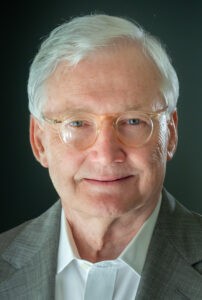In his seminal work After Virtue, Alasdair MacIntyre closes with an arresting and memorable paragraph :
A crucial turning point in that earlier history occurred when men and women of good will turned aside from the task of shoring up the Roman imperium. …. What they set themselves to achieve instead … was the construction of new forms of community within which the moral life could be sustained so that both morality and civility might survive the coming ages of barbarism and darkness. If my account of our moral condition is correct, we ought to conclude that for some time now we, too, have reached that turning point. What matters at this stage is the construction of local forms of community within which civility and the intellectual and moral life can be sustained through the dark ages which are already upon us. … We are waiting not for a Godot, but for another — doubtless very different — St. Benedict.”
The rise of monasticism helped preserve the moral, intellectual and spiritual life in that time of societal collapse. Given that most Christians today are not ready to take vows of celibacy, poverty, obedience and stability, what we might consider is what I call “connected sectarianism.”

Stephen Shoemaker
The phrase might seem an oxymoron. The leading sociologists of religion in the 19th and 20th centuries defined “sect” as religious groups that have broken away from their larger ecclesial bodies because they claim a purified version of the faith. They often were called heretics. The word has had largely negative connotations, some associating it with cult-like groups.
We see many breakaway movements in the larger church these days — witness the grievous division in the United Methodist Church. I remember Rowan Williams lamenting the divides in the Anglican world while he was Archbishop of Canterbury. He called for a serious look at the vow of stability in the Benedictine rule, that brothers would spend their entire monastic life in the same monastery, through thick and thin and all the challenges of life together unless reassigned by the abbott.
Baptist people long have been considered a sect type of religious community with our emphasis on believers’ baptism and what we called “regenerate” church membership. No cradle Christians. So we might be more amenable than most in adopting a connected sectarianism. It might look something like this:
- We set the priority of our spiritual life together in the formation of communities that can cultivate the moral, intellectual and spiritual life of the community rather than trying to shore up the American imperium.
- We maintain a serious connection with the larger church or denomination of which we are a part, even as a minority witness. Thus it has a serious ecumenical bent. The word “ecumenical” itself means the whole inhabited world as the household of God. What if we lived as if this were true?
- We join hands with people of good will in other religions and outside the church to help preserve the moral foundations of our society.
- We create “rules of life” as in the Benedictine rule of life that sustain life in the Spirit and in community.
- We are not afraid of being small or different, of living counter to our culture of official cruelty, anti-intellectualism, narcissistic individualism and worship of success.
- We cultivate being salt and light to our world instead of trying to save it all at once. Saving the world is God’s work. We follow the way of God’s kingdom which comes sometimes, as Jesus said, “without observation.”
- We decide to take the Bible at least as seriously as we take ourselves and seek first to be formed by the words and way of Jesus of Nazareth, whose way was counter to his world.
There is a rabbinic version of the Jonah story. In this telling, Jonah keeps preaching his message of repentance year after year in Nineveh. The city refuses to repent, and he becomes the laughing stock of the city. One day a young boy comes up to him and asks: “Why do you keep on preaching day after day with people not hearing you and laughing at you. Do you still hope to change Nineveh?” Jonah replies, “I did once preach to Nineveh to change it. Now I preach so Nineveh will not change me.”
So we preach and live .
Martin Luther King Jr. once wrote that religion is most vital at the edge of the circle, not the center. Philosopher Georgia Santayana put it this way: “Every living and healthy religion has a marked idiosyncrasy. It’s power consists in its surprising message and the bias which that revelation gives to life.”
This is the vocation of connected sectarianism.
Stephen Shoemaker serves as pastor of Grace Baptist Church in Statesville, N.C. He served previously as pastor of Myers Park Baptist in Charlotte, N.C.; Broadway Baptist in Fort Worth, Texas, and Crescent Hill Baptist in Louisville, Ky.
Related article:
The recovery of prayer at the turn of the age | Opinion by Steephen Shoemaker


